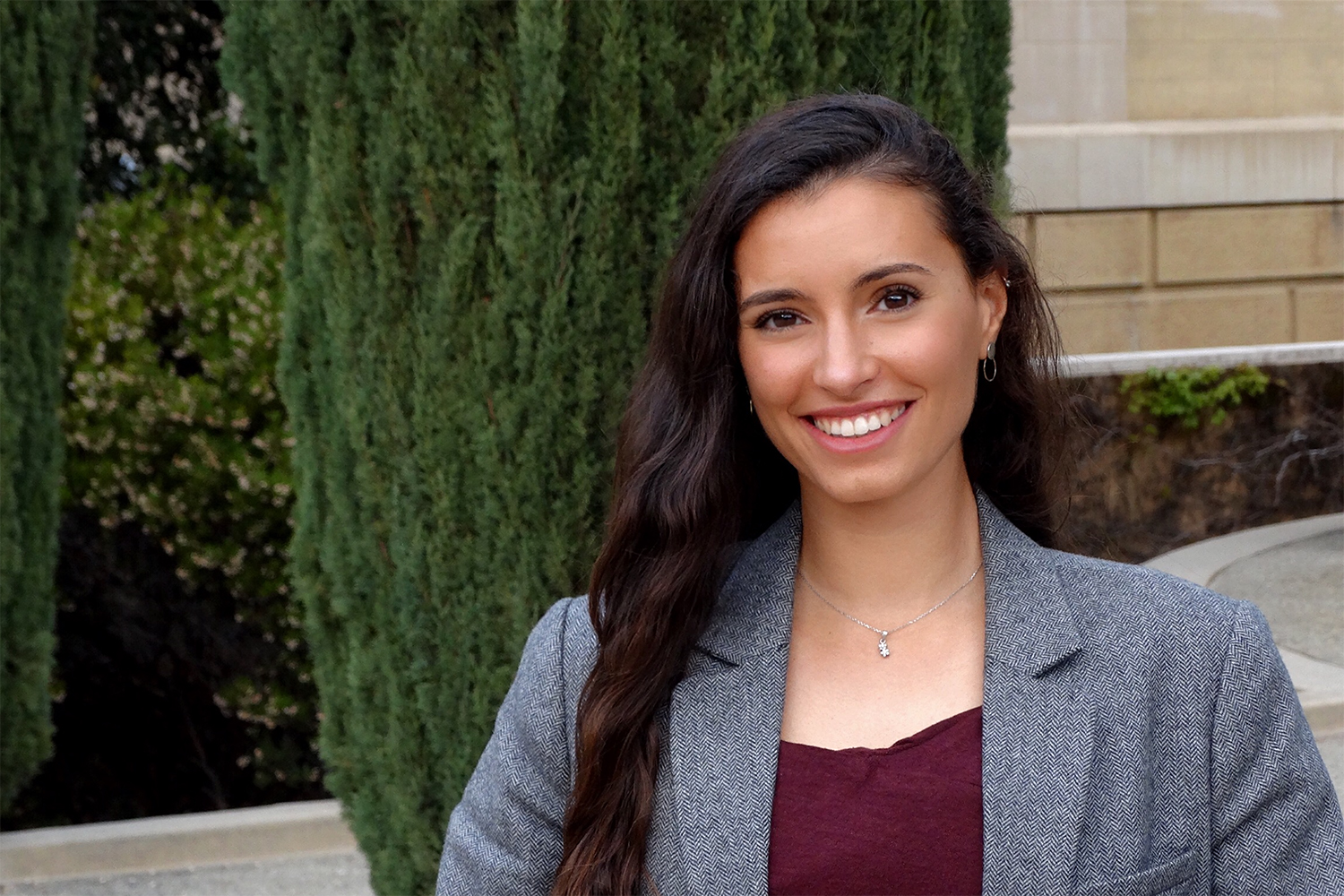Zeena Khazendar awarded Newman Civic Fellowship
Zeena Khazendar has been selected as a 2022-23 Newman Civic Fellow by Campus Compact for her work to advance global health access and outcomes.
As the granddaughter of Palestinian refugees, Zeena Khazendar is passionate about improving health access and outcomes for vulnerable people.

Zeena Khazendar has been chosen for the national Newman Civic Fellowship. (Image credit: Courtesy of Zeena Khazendar)
She is being honored for her efforts as a 2022 Newman Civic Fellow by Campus Compact, a national coalition of colleges and universities committed to the public purposes of higher education. President Marc Tessier-Lavigne recommended her for the award, which honors student leaders who have demonstrated a commitment to finding solutions for complex social and environmental challenges.
Khazendar is majoring in human biology with a concentration in design for global health and social impact. As a member of Stanford’s Biobehavioral Pediatric Pain Lab, she performs clinical research to investigate pediatric chronic pain. Her current research projects seek to understand the relationship between parents and their children with chronic pain, as well as chronic pain outcomes in children with a history of Adverse Childhood Experiences (ACEs).
Khazendar also serves as a director at SCOPE, a student-led organization within the nonprofit Be a Good Doctor. Through SCOPE, premedical students volunteer to assist medical staff and provide interpretation for patients at Santa Clara Valley Medical Center, a level-one trauma center. When the pandemic began, SCOPE leaders rapidly pivoted to provide Spanish and Vietnamese interpretation services virtually, rather than in person. Khazendar led the effort to provide virtual interpretation by raising money for iPads.
Much of Khazendar’s service has been based on recognizing a need in an underserved community and taking steps to address it. Her own difficulties navigating the college application process inspired her to establish Virtual Mentorship for Students Abroad, which connects international first-generation students to college-aged mentors in the United States to guide them through the process. The mentorship program has linked over 20 mentors and mentees so far, with plans to expand the size of the program in the future and create teams of mentors to work on targeted projects, such as outreach and scheduling.
“I had no idea where to start,” Khazendar remembers of her college application process. “It was the mentorship of my teachers in high school that got me here. Going to a place like Stanford changes the trajectory of your entire life, so that’s what I wanted to give back to students in low-resource settings outside of the United States.”
Khazendar also draws on her role as a student-athlete to support children and youth locally. A member of Stanford’s beach volleyball team since freshman year, she volunteers with the organization Kids with Dreams, which offers opportunities in sports and the arts for children and young adults with special needs. This builds on her work for several years as a coach for a Special Olympics volleyball team, which won a state championship.
Working in global health equity has a personal connection for Khazendar, whose grandparents were refugees from Palestine. Growing up in Jordan near refugee camps, Khazendar saw firsthand the difficulties that people without adequate healthcare face. When she moved to the United States in the fifth grade, she was shocked by the cultural differences. Her independent research on how to approach health needs in low-resource settings led her to give a TEDx Talk on refugee healthcare successes.
While her trajectory has shifted over time, her ultimate desire is to advance health equity globally.
“That passion for working in low-resource settings has only evolved over time,” Khazendar says, “Getting to work with Stanford professors and meet so many people who are doing the things that I’ve always been interested in doing has pushed that passion forward.”
Khazendar reached out to Gary Darmstadt, associate dean for Maternal and Child Health and professor of pediatrics at the Stanford School of MedicineHe invited her to join his effort with Stanford School of Medicine affiliate Laila Soudi to build a Middle East and North Africa (MENA) Health Program at Stanford Medicine. One of her favorite parts of working with the MENA Health Program has been the ability to have a voice in the program’s direction. One such project uses a task-sharing model to train and employ Yemeni women to provide mental health services, with a virtual option to connect residents with a physician or medical student at Stanford.
Dr. Jennifer Abrams, BA ’05, MD ’11, cofounder of Be A Good Doctor, said: “Zeena’s excitement for creating sustainable impact is contagious and her certainty is inspiring. Those that know Zeena cannot doubt that she will create change in whichever community she is a part of because, regardless of the environment she is placed in, she is consistently taking concrete steps toward impact.”
Through the Newman Civic Fellowship, Khazendar will join undergraduates nationwide being recognized as changemakers. The fellowship is named for the late Frank Newman, co-founder of Campus Compact and founding member of the National Advisory Board of Stanford’s Haas Center for Public Service. The year-long program provides training and resources to equip students to take leadership roles in addressing public problems and building equitable communities.
When Khazendar heard she received the fellowship, she said she was shocked.
“You never think you’ll be the one selected,” she said. “We all push each other as a community at Stanford. It’s a great experience to be around people who are passionate about so many different things.”
Gabriella Herrera is a communications associate with the Haas Center for Public Service.